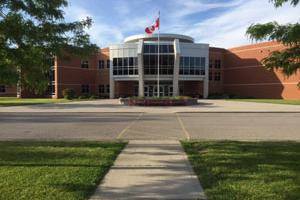Special Education
|
The development of each student’s abilities and potential is a shared responsibility. It is the role of Special Education Department staff to work with teachers, students, school personnel, parents and community agencies to provide options for school and life success for all students. Program expectations are flexible and based upon an individual’s abilities and needs. This collaborative model provides services which are delivered primarily within the regular classroom through the classroom teachers and supported by the Special Education Resource staff. Appropriate intervention, time on task and feedback are key. However, the student becomes responsible for working with specific classroom teachers for precise accommodations and responsibilities in each class. This self-advocacy program assists the student in developing an understanding of their exceptionality and stresses that they are the key component in any plan of action. This also empowers the student to seek assistance and strategies necessary for them to be successful. The Special Education Department offers a variety of services to assist students in getting the maximum benefit from their secondary school experience and making the transition to post secondary life. |
|
Job Skills Program This class is designed to serve students in a program which provides courses (credit and/ or non-credit bearing) combined with on-the-job training, geared toward an ultimate postsecondary goal of independent community living and realistic employment. Community Living Programs This program is designed to serve students in a non-credit program whose ultimate post-secondary goal is to seek supported living and supported employment in the community. Personal Active Learning Program (PAL) This program is designed to serve students in a non-credit program with intensive supports to enhance student learning. Student strengths are developed and their needs met as outlined in their IEP. These strengths and needs are met through a multi-sensory approach that includes academics, sensory awareness, augmentative communication, special physical activities, and other opportunities to enhance learning. Alternative Courses Alternative courses are non-credit courses. The course expectations in an alternative course are individualized for the student and generally focus on preparing the student for daily living. School boards must use the “K” course codes and titles found in the Ministry’s Common Course Code Guide to identify alternative courses. |
|
TLC: The Learning Centre Learning Strategies (GLE) These credited courses introduce students to learning theories and strategies that help them increase their personal management skills both in school and in other contexts. These courses will also help students to identify their preferred ways of learning and use this knowledge to increase their confidence, motivation and ability to learn. Students learn to apply these study skills by completing their homework and assignments for their other courses. Students can earn up to four (4) learning strategies credits during their high school career. |
Special Education Department Informational Video
Special Education from BHNCDSB on Vimeo.







